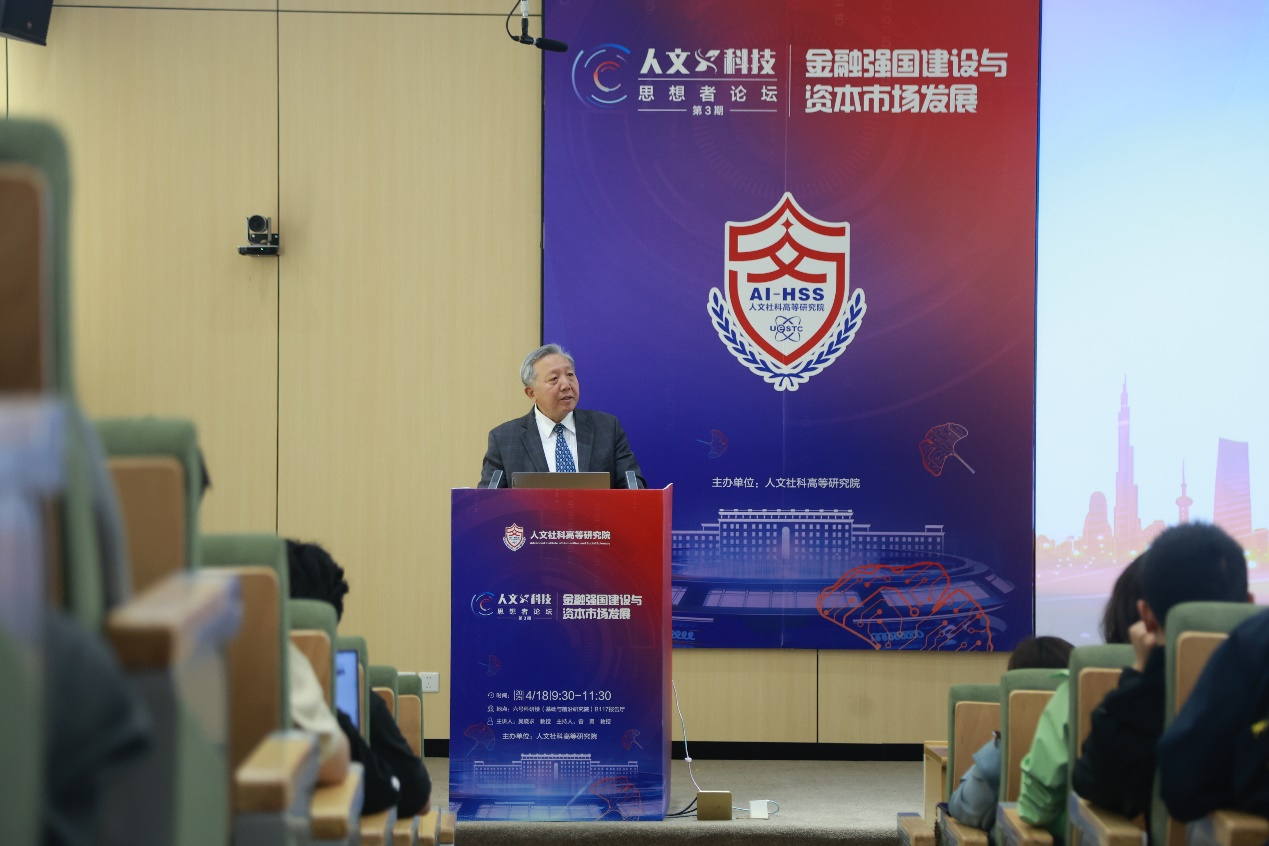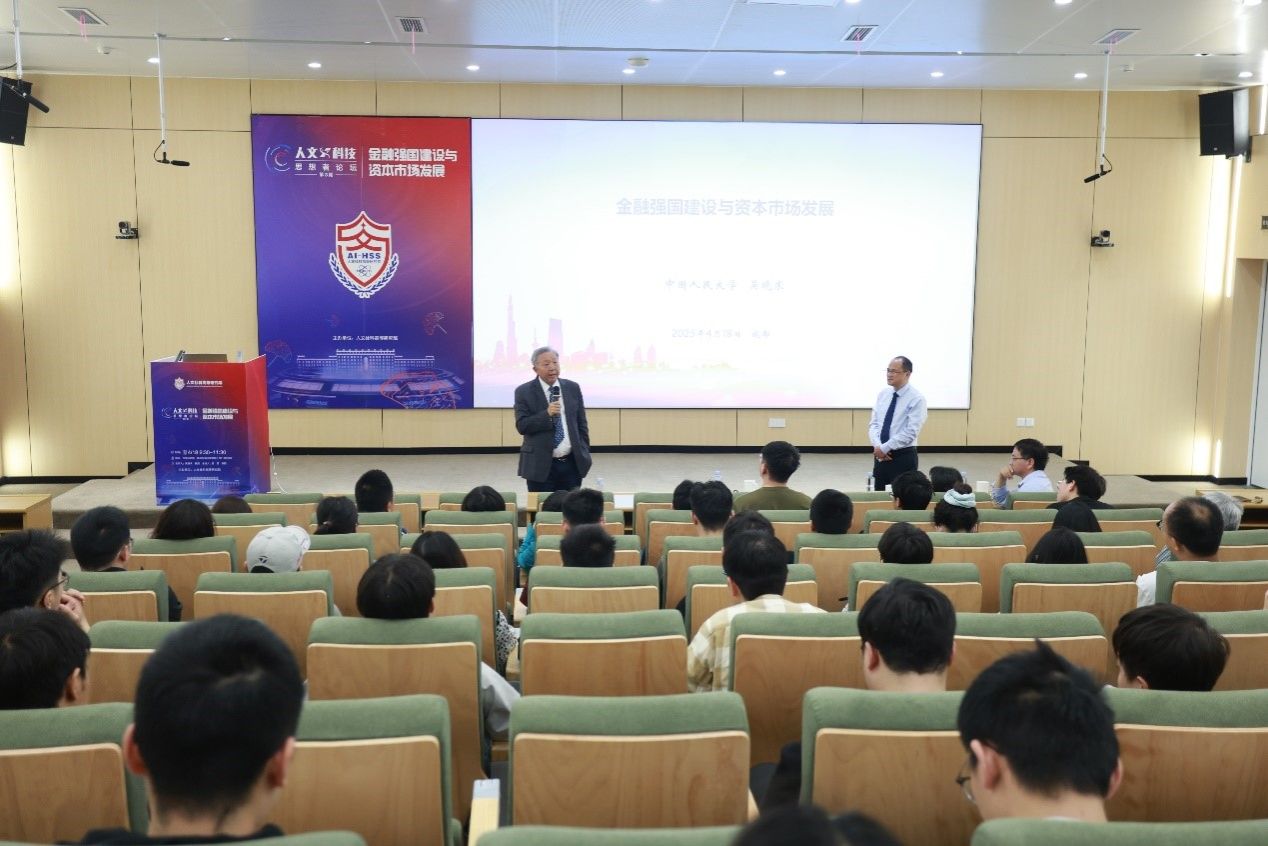On April 18, the Advanced Institute of Humanities and Social Scienceshosted the thirdHumanities × Technology Thinkers’Forum. Centering on the theme Building a Financial Powerhouse and Capital Market Development, the forum featured distinguished financial economist Professor Wu Xiaoqiu, National First-Class Professor,NationalLeadingTalent, and former Vice President of Renmin University of China, asthekeynote speaker. The event wasmoderatedby Professor Zeng Yong, Academician of the International Eurasian Academy of Sciences and Dean of the Advanced Instituteof Humanities and Social Sciences.

In his opening remarks, Professor Zengextended a warm welcome to Professor Wu, highlighting his significant academic contributions while contextualizing the forum's background and thematic focus.

Professor Wu first commended UESTC's establishment of the Advanced Instituteof Humanities and Social Sciencesas a visionary initiative, noting that STEM universities' development of humanities and social sciences constitutesa crucial long-term strategic investment. He emphasized that cultivating independent critical thinking represents the fundamental mission of humanities education. Drawing upon his profound expertise in financial theory and policyimplementation, Professor Wu articulated three essential principles for advancing humanities scholarship: first, fostering an egalitarian academic attitude; second, maintaining a tolerant intellectual environment; and third, encouraging unfettered academic discourse.
Transitioning to Sino-American economic relations, Professor Wu stressed China's need to confront challenges through higher-level openness. He advocated expanding into European markets, improving the rule-of-law-based business environment to attract foreign investment, and accelerating RMB internationalization. Regarding financial powerhouse construction, he proposed a dual-engine framework: leveraging technological innovation to upgrade industrial structures and strengthen real economic foundations on one hand, while enhancing legal governance, contractual integrity and market transparency to build institutional opennessas soft power on the other, thereby establishing the RMB asavehicle fornational creditand civilizationalidentity.
During the Q&A session, Professor Wu's theoretical-practical analysis highlighted welfare systems' significant role in economic stabilization and equity promotion. He posited that addressing fundamental wealth distribution issues constitutes the prerequisite for wealth generation, recommending targeted policy interventions with dynamic adjustments while urging dialectical perspectives on such phenomena.
This forum's focus on cutting-edge financial topics facilitated interdisciplinary dialogue between humanities and technology, generating theoretically-grounded yet practical insights for financial powerhouse development while advancing integrative academic practices across disciplinary boundaries.